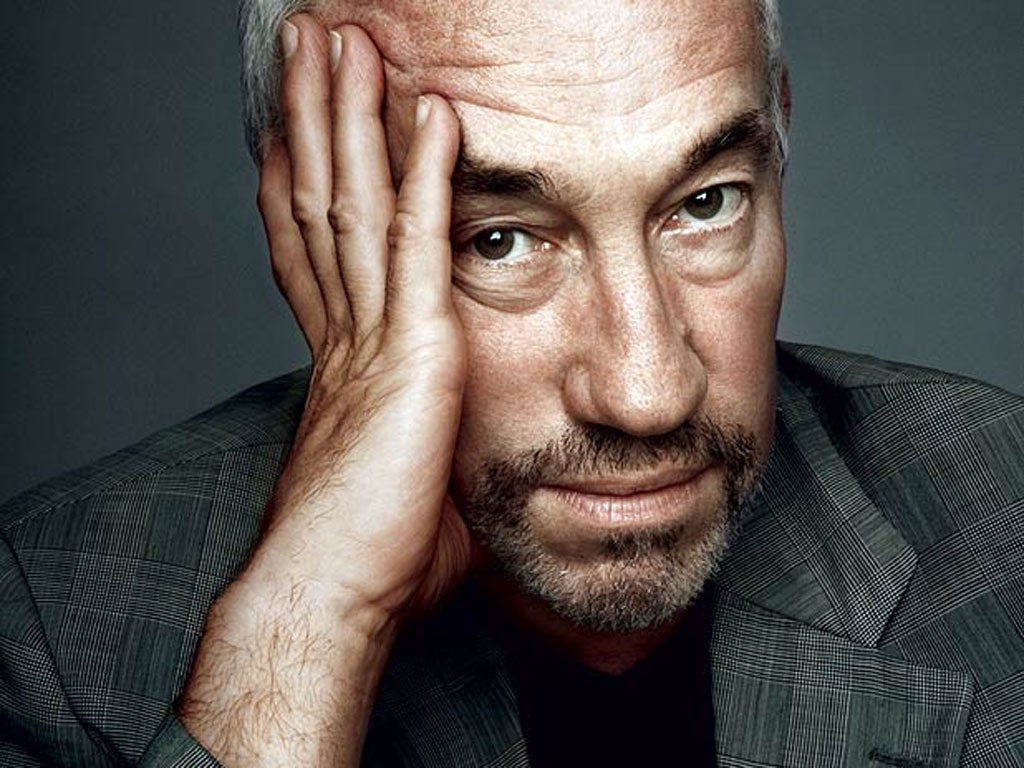Simon Callow talks the circus, Jamie Oliver and coming out

Simon Callow – actor, director and writer – doesn’t have many regrets, but he says he would love to have joined a circus. He would be “a clown of course.”
“The combination of exuberance and melancholy, of death-defying performances of honed perfection and the best type of slap-stick,” he says.
This seems like an unusual admission for the Four Weddings and a Funeral Star but he has always embraced new challenges. The flamboyant thespian moved from TV and theatre- his stage debut was in 1973- to writing and directing. His most famous book, an analysis of his relationship with theatre agent Peggy Ramsay entitled Love Is Where It Falls.
But Callow is too busy at the moment to consider a career change. He is rehearsing in the day time and on the road at night with his latest book, Charles Dickens and the Great Theatre of the World. Plus every lunch is taken up with interviews for Callow’s one-man play Being Shakespeare, and the actor is even working Sundays.
It has been well-publicised that he is a great campaigner for the elderly – because of his Mum who resides in a care home - so what does Callow think of the way Britain treats its older generation?
"What is Britain? The people? The government?” he asks.
“Everybody is doing their best. It is very, very tough. I am aware that there are abominable retirement homes. The one my mother is in is superb. It is incumbent on every child of an elderly to do the research, to check out different possibilities, and then to choose the best. No easy solutions for any of us.”
This is clearly an issue that the dramatist is passionate about. He also talks in depth about Jamie’s Dream School, a TV show set up to help failing school children in which he was an English teacher.
“It was a nightmare, but an informative one. These kids were brilliant, interesting, intelligent, and original. But they were throwing away their lives because they thought that it was smart to do so, that they were pulling a fast one over The Establishment, whatever that might be.
“They didn't grasp that the only people they were dissing were themselves. And there was nothing I or any of us could do to persuade them of it.”

Watch Apple TV+ free for 7 day
New subscribers only. £9.99/mo. after free trial. Plan auto-renews until cancelled.
ADVERTISEMENT. If you sign up to this service we will earn commission. This revenue helps to fund journalism across The Independent.

Watch Apple TV+ free for 7 day
New subscribers only. £9.99/mo. after free trial. Plan auto-renews until cancelled.
ADVERTISEMENT. If you sign up to this service we will earn commission. This revenue helps to fund journalism across The Independent.
On other topics he has less to say. He got on “fine” with Jamie Oliver; the future of the British theatre is “glory”; he enjoys playing “well-written” parts and he doesn’t prefer acting, writing or directing but rather, “whatever I’m not doing at the moment”.
He gleefully reminisces about a time an audience member interrupted his performance in the Beastly Beatitudes of Balthasar B, Duke of York’s in 1981.
“I was supposed to be playing the raunchiest character on earth, but was somewhat upstaged by a couple in the audience actually copulating in the stage box. They turned out to be the best friends of my co-star Patrick Ryecart,” he jokes.
In his own romantic life Callow has said in past interviews his favourite poem is Shakespeare’s sonnet 49 about anguish of love. But his experiences of love are “too many” for him to say.
The great British performer won the Sheridan Morley Prize, an annual award for best biography, in 2011 for My Life In Pieces and he is judging this year’s ceremony taking place on Thursday.
He says the entries, including those by actor James Corden and composer Stephen Sondheim, are hard to choose from because of their excellence.
“They’re all deeply interesting in very different ways. Sondheim is a master’s summary of his craft and Corden’s is a brilliant young comic actor’s journey.”
His future plans are to carry on working on Being Shakespeare as well as to continue with his writing. Next year he will be starting the volume three of his Orson Welles biography.
Callow thinks his greatest achievement was coming out when he did. “I’m glad I came out at a time when to be homosexual was seen to be the death for an actor,” he says.
“I never had any hesitation about it whatever. All sorts of people tried to dissuade me from coming out publicly but I could see no option. I would have been found out, and that of all things is what I dread - being caught with my fingers in the till, being in the wrong.”
Join our commenting forum
Join thought-provoking conversations, follow other Independent readers and see their replies
Comments
Bookmark popover
Removed from bookmarks